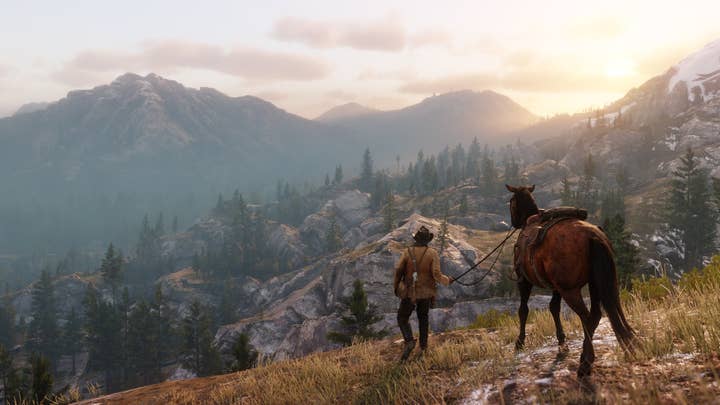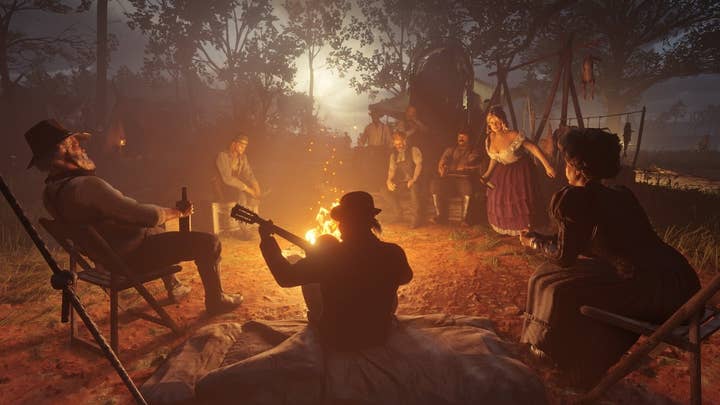100-hour weeks mean bad management, not passion
Rockstar may not be the hell it's been portrayed as - but we need to stop lionising long overtime and start seeing it as a shameful sign of failure
Rockstar has spent much of the week furiously backpedaling away from co-founder Dan Houser's ill-advised boasts about working 100-hour weeks on Red Dead Redemption 2 - and I'm sure I'm not the only one idly wondering how many hours of overtime the firm's PR people have put into trying to fix the resulting mess.
It's an uphill struggle to turn around the narrative, not least because Rockstar seems to have misunderstood the motivation for much of the ensuing criticism it faced. It's not that people are shocked that some Rockstar staff are working 100-hour weeks, nor is it that anyone believes this is commonplace across the board at the studio - rather, it's the fact that Houser, an extremely senior and influential industry figure, felt like this kind of crushing, masochistic work schedule was something positive and worth bragging about.
So sure, Houser was exaggerating and clearly misrepresenting the reality of working on RDR2. For the few people who took his initial statement at face value and started imagining conditions at Rockstar's studios as a cross between a Dickensian workhouse and Blake's dark Satanic mills, letting staff speak out about their own conditions on social media might be a helpful response - but it doesn't change the fact that Houser made a boast of something that many others in the industry have been working hard to reduce or remove altogether.
"The debate over working conditions in the games business has never been hotter than it is right now, so Houser's comments were like a hand grenade tossed into a Mexican stand-off"
I guess it goes without saying that someone who's been a lead writer on games like GTA and Red Dead Redemption has a great sense of timing and context - the debate over working conditions in the games business has never been hotter than it is right now, so Houser's comments were like a hand grenade tossed into a Mexican stand-off. He touched a lot of nerves that are a little raw right now - the specific question of crunch and overtime itself, of course, but also the broader ongoing battle over the masochistic and self-destructive work schedules that are so often handwaved away as "passion" or "culture", the growing realisation of how bad the industry is at burning out its talented people, and the question how much developers actually owe to the companies they work for.
So we can take at face value Rockstar's assertions that its own workplace policies really aren't that bad, while still taking this as yet another example of the industry's self-harming obsession with long hours and bad work-life balance. We can see it as a sign that the important message of the past decade - that endless crunch, sleeping under your desk and living off company-provided pizza and sodas isn't "passion", it's a product of mismanagement, a recipe for sloppy work and a fast road to burnout - still hasn't hit home for many of the people who most need to embrace it.

There are really two problems here, but they go hand in hand. The first is that there genuinely is a culture within game development which views this kind of insane overtime and abysmal work-life balance as being an expression of passion. If you're a twenty-something who has lived and breathed video games for years, getting to work on an exciting project for the first time, then sure - it's your dream come true, right? Why wouldn't you want to spend every waking hour in the office? Why wouldn't you look down your nose at people who aren't "passionate" enough to put in those long hours, or quietly roll your eyes at older folk with family or other commitments? That kind of thinking is both completely understandable and utterly destructive; it creates a working environment that's deeply unwelcoming and monotone, leads to mistakes and poor quality work, and is ultimately unsustainable for even its most forthright advocates, because that's just not how human beings' minds and bodies actually work.
"Endless crunch, sleeping under your desk and living off company-provided pizza and sodas isn't "passion", it's a product of mismanagement, a recipe for sloppy work and a fast road to burnout"
The second problem, of course, is that there are unscrupulous or simply ignorant managers out there who are more than willing to take advantage of that kind of thinking - to nurture and cultivate it, squeezing their staff harder and harder while reciting the mantra of "company culture" and "passion". Sometimes it's an attempt to keep staff costs low by getting more work out of a smaller team (this rarely actually works since actual productivity drops off rapidly in overworked people, as anyone who's studied management since about, oh, the early 1900s can tell you); more often than not it's to cover over the manager's own incompetent handling of project planning, scheduling and budgeting.
The dual nature of this problem is why the ongoing push for unionisation - despite slowly gaining momentum - faces such a difficult path ahead. Were it simply that managers were forcing an unhappy workforce to do excessive overtime and crunch, then unionisation would be a cinch; but that masochistic crunch culture is also embraced by many developers themselves. The catch-22 is that by the time developers are burned out and jaded enough to realise that they've been mistaking overwork for passion all along, they're more likely to be looking for a way out of the industry entirely than to be throwing their weight behind unionisation efforts - becoming part of the brain drain of talent out of video games and into other sectors which is one of the major costs of this culture.
The good news is that even if senior people like Dan Houser still think that 100-hour working weeks are positive and worthy of boasting, rather than a shameful sign of mismanagement, the tide is clearly turning. Ten or even five years ago, I'm pretty sure Rockstar would have felt no inclination to walk back or re-contextualise anything Houser said - but the industry has changed, slowly but surely, and there's a growing recognition that a hellish work culture (or the perception of one!) is a really negative thing for a studio.

That, perhaps, is how the industry gets to where it needs to go - even if efforts to unionise fizzle out, a broad recognition that work-life balance and employee conditions are vital to the success of a studio would fix at least some of the problems proponents of unions wish to tackle.
An industry culture where crunch, long working hours and other workplace abuses are widely reported and known (either anonymously through systems like Glassdoor or openly via the media), while good work-life balance and healthy working environments are celebrated, would gradually make it harder and more expensive for the former kind of business to hire skilled, veteran staff. That's a very real and serious cost; hiring is not cheap at the best of times, and losing access to a large swathe of experienced, high quality staff would be devastating for many firms.
This is still a poor second option to a union in some respects, not least since often the people most in need of protection are young newcomers - who have far less capacity to be choosy about a potential employer's work environment, and are far more likely to fall for nonsense about "passion" from an abusive manager - but it would at least allow people to make more informed and sensible judgements about the jobs they take.
Meanwhile, even as bad workplaces are punished with throttled access to experienced and high-skilled staff, good workplaces - like those highlighted in this week's GI Best Places to Work awards - should find it easier and cheaper to bring on board excellent quality staff.
